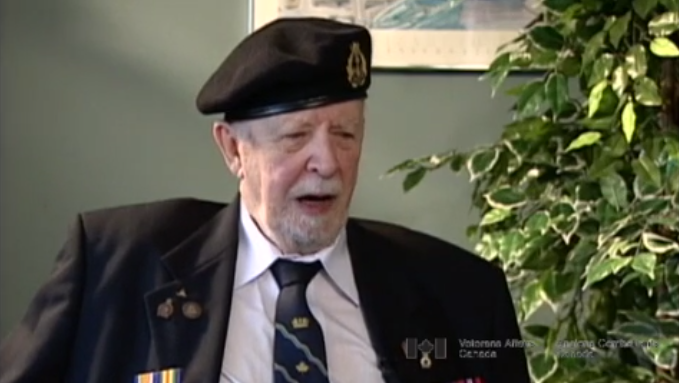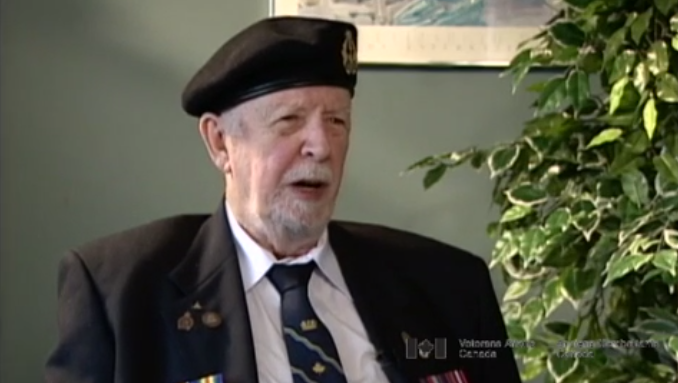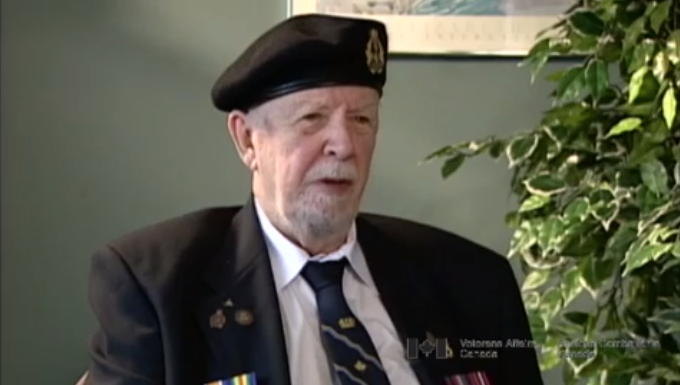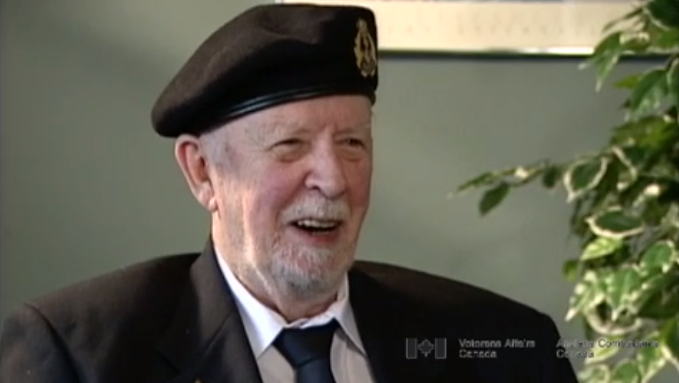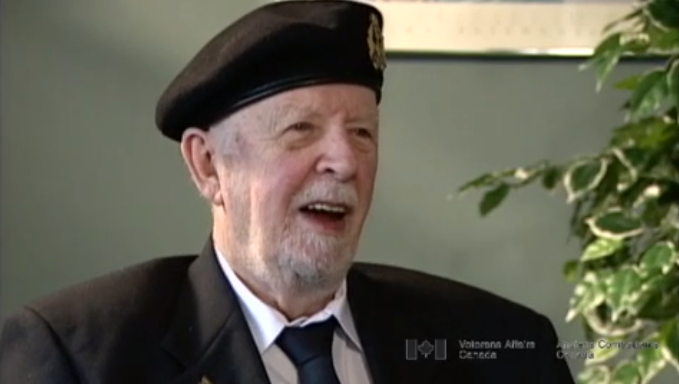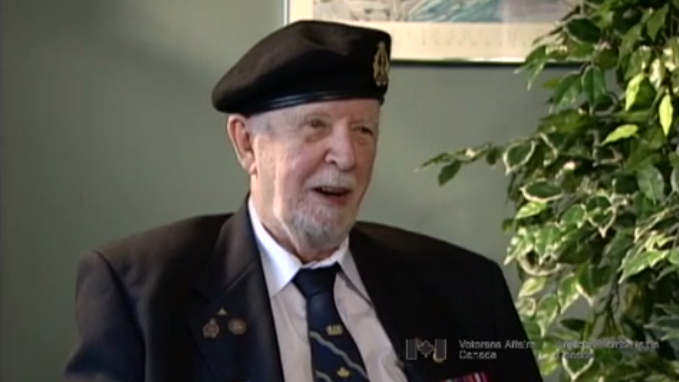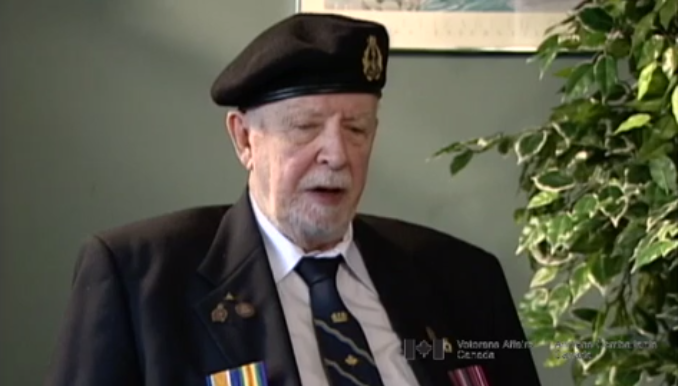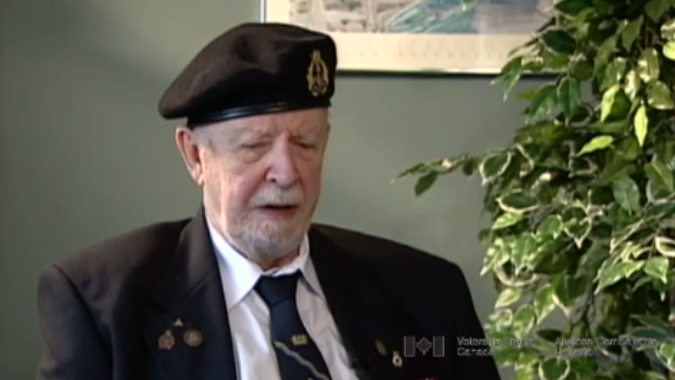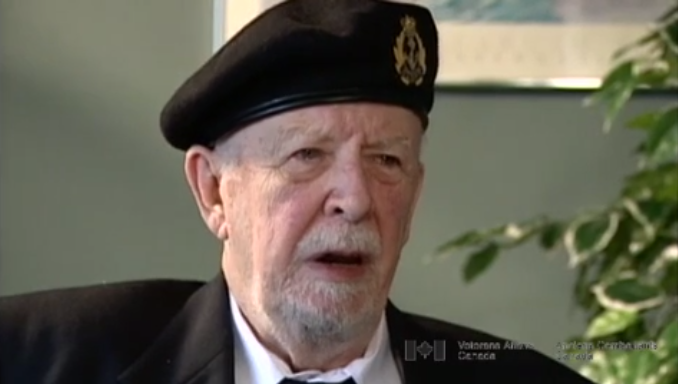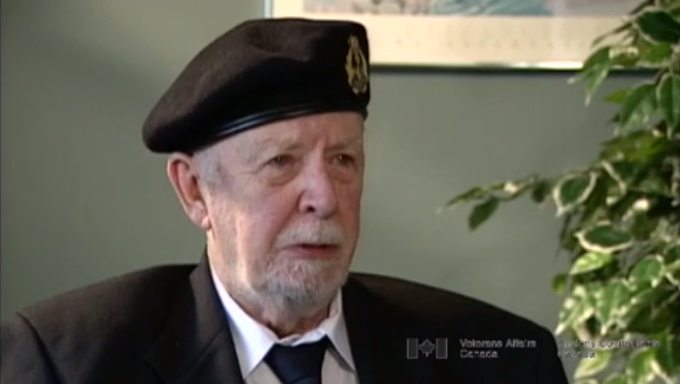Receiving Messages
Heroes Remember
Receiving Messages
When I went to Halifax, I wound up in the Shore Wireless Station
in the dockyard. It was something that wasn’t too, I wasn’t
much in favour of it, but you couldn’t stand up and said, “Hey
man, I don’t like this job. Find me a better one.” It was the
night times were the hardest, I ... listening, constantly
turning the dial, checking the frequency I was on ‘cause
sometimes the message coming in would be, would not be bang
right on the frequency. It would be above or below it so we
used to scan it, above and below, and then that was the time
when you had to be on the ball, on the key, you had to ... Soon
as you heard the message, there would be a call from the ship at
sea. They’d give you your call sign and then you’d radio back
to him that you’d received him at strength so and so, and sign
off. And then he’d start his message. And if it was a good
night, it would come in nice and clear. But sometimes it came
in with thunder and lightning in the background, earphones
hissing, and banging, and snapping. We got so we never wore the
earphone right over our ear, we always wore it on the bone, just
ahead of the ear, and you could pick up the messages through the
bone that was right there in your head. Saved your ears if the
thunder suddenly made a ... The lightning had a stroke right
there beside the antenna. Message addressed to the ship at sea
would be on the routine which would be, was on, I think, 425
kilocycles. And the messages we filed by number, by time
rather, time and date. And if it was addressed to your ship it
would say so in the heading of the message, to what ships or to
all ships at sea, or something like that. You never had to
acknowledge them. The only time you broke radio silence was
entering harbour. You had to give them your ETA when you were
going to enter harbour. And then the wireless station ashore
would receive the message and give you an R, indicating they’d
received it. But other than that, the messages over the routine
didn’t have to be acknowledged. They weren’t expected to be
acknowledged ‘cause it was advice more or less. We had a coder
and he coded and decoded messages. He’d do the heading and if
it was for the captain then, or for our ship, then he would
continue on and decode the new, the numbered groups that were
there … write out the message, and then take
it to the signals officer, who took it to the captain.
Related Videos
- Date modified:



